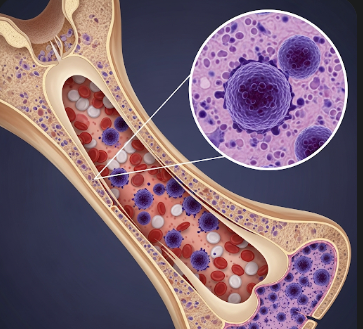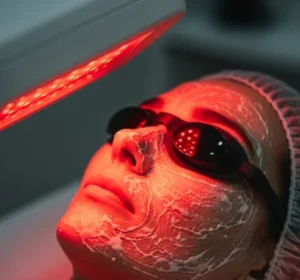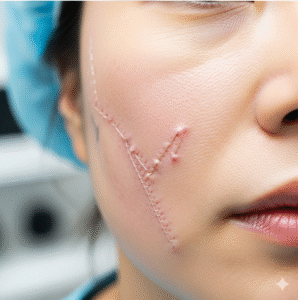Overview
Bone marrow cancer is a group of malignant disorders affecting the bone marrow, the soft tissue inside bones responsible for producing blood cells. These cancers disrupt normal blood cell production, leading to anemia, infection risk, bleeding disorders, and systemic complications. Common types include leukemia, multiple myeloma, and myelodysplastic syndromes.
In Korea, bone marrow cancers are treated in advanced hematology and oncology centers, utilizing chemotherapy, targeted therapies, immunotherapy, and bone marrow transplantation. Early detection, accurate diagnosis, and multidisciplinary care are emphasized to improve survival, manage symptoms, and maintain quality of life.
What is Bone Marrow Cancer?
Bone marrow cancer occurs when abnormal cells proliferate uncontrollably in the marrow, interfering with normal blood cell production. Depending on the type of cancer:
- Leukemia: Rapid production of abnormal white blood cells crowding out normal cells
- Multiple Myeloma: Cancer of plasma cells leading to bone lesions and immune suppression
- Myelodysplastic Syndromes (MDS): Ineffective blood cell production with risk of progression to leukemia
These malignancies can affect any age group, though certain types are more common in children (acute lymphoblastic leukemia) or older adults (multiple myeloma).
Symptoms
Symptoms of bone marrow cancer often reflect disruption in blood cell production and may include:
- Fatigue and weakness due to anemia
- Frequent infections from low white blood cell counts
- Easy bruising or bleeding caused by low platelet counts
- Bone or joint pain, especially in multiple myeloma
- Swollen lymph nodes, liver, or spleen in leukemia
- Fever, night sweats, or weight loss
- Paleness or shortness of breath
- Petechiae or small red spots on the skin
Symptoms often develop gradually, leading to delayed diagnosis in some patients.
Causes
The exact cause of bone marrow cancer is not fully understood, but it involves genetic mutations, chromosomal abnormalities, and environmental exposures:
Genetic factors:
- Mutations in oncogenes or tumor suppressor genes
- Chromosomal translocations or deletions
Environmental factors:
- Radiation exposure
- Chemical exposure (benzene, certain chemotherapy agents)
- Smoking and occupational hazards
Other factors:
- Previous blood disorders such as anemia or myelodysplastic syndromes
- Viral infections (e.g., Epstein-Barr virus) in some cases
Risk Factors
- Age: Older adults are more prone to multiple myeloma and MDS
- Family history: Certain hereditary syndromes or familial leukemia
- Previous cancer treatment: Radiation or chemotherapy
- Exposure to toxins: Benzene, pesticides, or industrial chemicals
- Genetic syndromes: Down syndrome and Li-Fraumeni syndrome
- Immune suppression: Chronic immunodeficiency or organ transplant patients
Complications
Bone marrow cancer can cause serious complications if untreated or uncontrolled:
- Severe anemia: Leading to extreme fatigue and organ stress
- Infections: Life-threatening due to low white blood cells
- Bleeding and clotting disorders from low platelets
- Bone lesions and fractures in multiple myeloma
- Organ enlargement or failure due to infiltration of abnormal cells
- Progression to acute leukemia in MDS
- Secondary cancers due to therapy or disease progression
Prevention
Complete prevention is not possible due to genetic and environmental factors, but certain measures may reduce risk or aid early detection:
- Avoid exposure to known carcinogens such as benzene and industrial chemicals
- Maintain a healthy lifestyle: Balanced diet, exercise, and avoiding smoking
- Regular medical check-ups: Especially for high-risk individuals
- Monitoring after chemotherapy or radiation therapy for early signs of marrow dysfunction
- Genetic counseling for families with hereditary predisposition
Treatment Options in Korea
Diagnosis
Diagnosis in Korea involves comprehensive hematologic evaluation:
- Physical examination: Assessing pallor, organ enlargement, and bleeding signs
- Laboratory tests: Complete blood counts, peripheral smear, and biochemical panels
- Bone marrow biopsy and aspiration: Determines cancer type and cellular characteristics
- Flow cytometry and cytogenetic analysis: Identifies genetic mutations and chromosomal abnormalities
- Imaging: X-rays, CT, MRI, or PET scans to detect bone lesions or organ involvement
- Molecular testing: Guides targeted therapy selection
Medical Management
- Chemotherapy: Standard treatment for leukemia, MDS, and multiple myeloma
- Targeted therapy: Drugs like tyrosine kinase inhibitors or monoclonal antibodies
- Immunotherapy: CAR-T cell therapy or checkpoint inhibitors in select cases
- Supportive care: Blood transfusions, antibiotics, and growth factors to manage complications
Bone Marrow / Stem Cell Transplantation
- Allogeneic stem cell transplant: Donor marrow replaces diseased marrow
- Autologous transplant: Patient’s own marrow collected and reinfused after high-dose chemotherapy
- Korean transplant centers have advanced protocols with high success rates and post-transplant care
Supportive Care
- Infection prevention: Sterile environments and prophylactic antibiotics
- Nutritional support: Optimizing calorie and protein intake
- Psychological counseling: Coping strategies for patients and families
- Physical therapy: Maintain strength and prevent deconditioning during treatment
- Regular monitoring: Blood counts and imaging to detect relapse or complications
Prognosis
Prognosis depends on cancer type, stage, age, genetic profile, and treatment response:
- Leukemia: Early diagnosis and treatment can lead to long-term remission, particularly in children with ALL
- Multiple myeloma: Chronic management possible with modern therapies, though relapse is common
- MDS: Risk of progression to acute leukemia; prognosis varies with risk stratification
- Korean advanced oncology care improves survival through early intervention, precision medicine, and comprehensive follow-up
- Quality of life can be maintained with supportive care, rehabilitation, and psychosocial support













